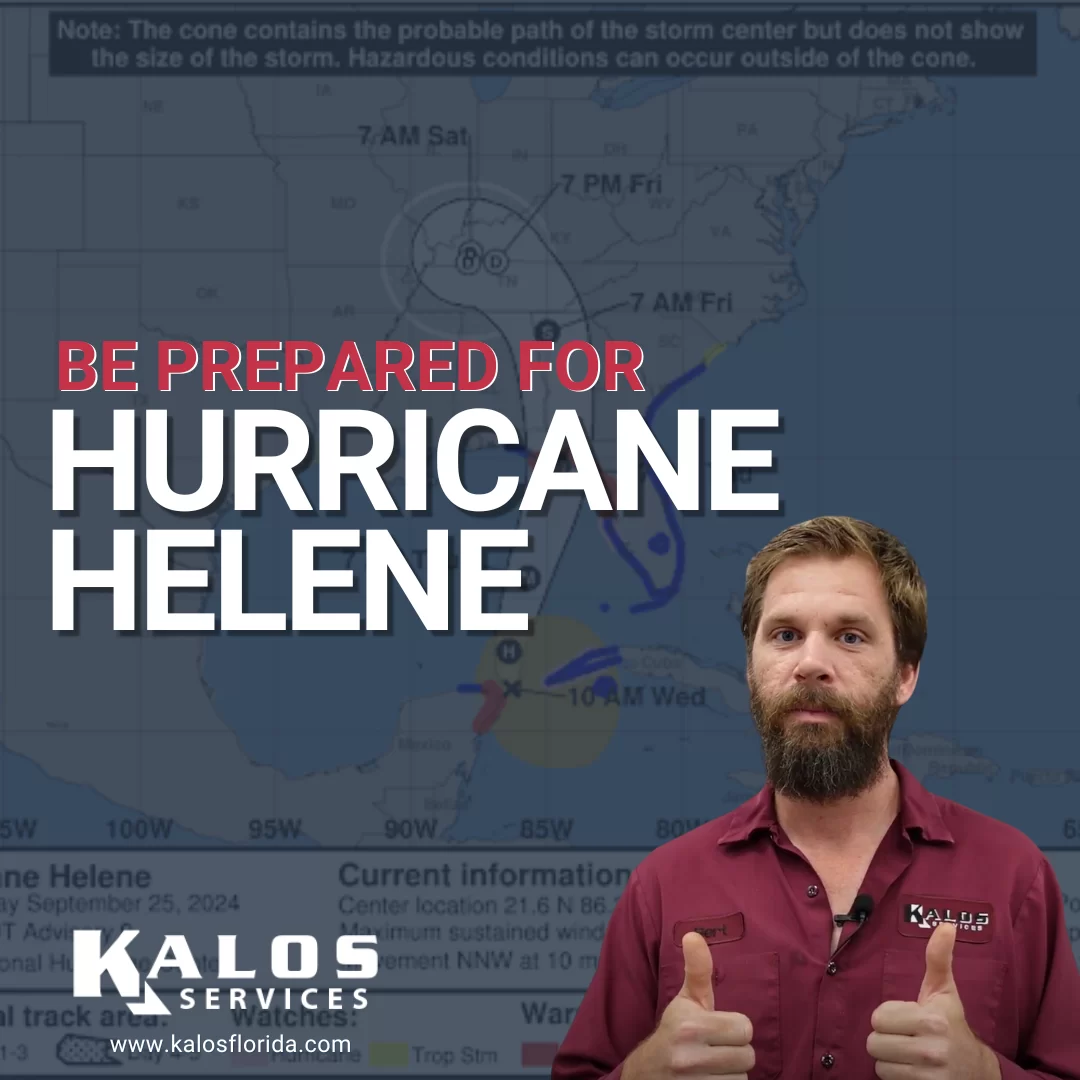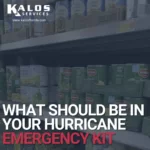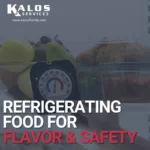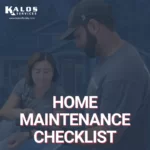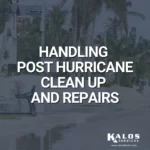As of this writing, Hurricane Helene is a Category 1 hurricane in the Gulf of Mexico and is expected to make landfall in the Florida Panhandle as a Category 3 hurricane. While our Central Florida service area is unlikely to bear the worst of the storm, we are still likely to experience high winds, heavy rainfall, and power outages.
Here are some quick tips to keep yourself and your family safe as Helene passes through.
Gather Your Essentials
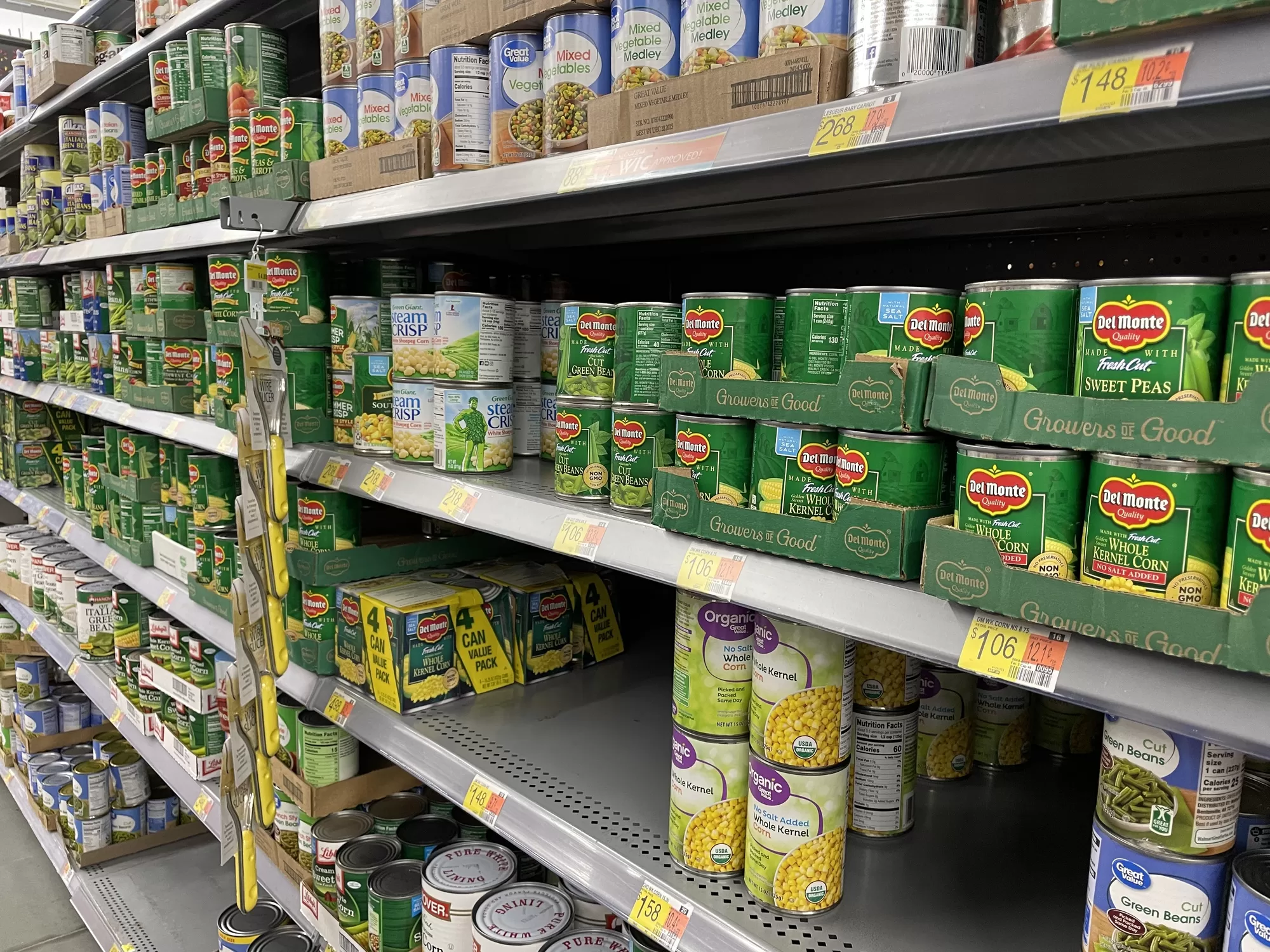
Here are some items we recommend keeping on hand in case you lose power or water or suffer injuries from hurricane damage:
- Battery-powered flashlight
- Extra batteries
- Non-perishable food (at least three days’ worth per person)
- Bottled drinking water (at least one gallon per person per day for at least three days)
- Manual can opener
- First aid kit
- Closed-toed shoes in good condition
- Cell phone and a means to charge it (or replacement batteries)
- Adequate supply of prescription and non-prescription medications
- Infant formula and hygiene supplies
- Pet food and identification
- Hand sanitizer, soap, and personal hygiene products
This list contains some of the items from the basic disaster supplies kit on https://www.ready.gov/kit. You can find a much longer list there, but these are the items that you will most likely need if you are staying in the Central Florida area during Hurricane Helene.
Secure the Outdoor A/C Unit and Other Outdoor Items
Move all items that can be picked up by the wind indoors. These include the following:
- Yard decorations
- Sports equipment or dog toys
- Outdoor chairs
- Cooking equipment like grills or smokers
- Portable firepits
- Gardening tools like shovels and rakes
Follow Proper Guidelines for Utilities
You will typically not need to turn off your utilities unless local officials instruct you to do so. However, it is often a good idea to know where to shut off the utilities if you absolutely must—and to know that you should only shut them off if it is safe to do so.
The main water supply valve is usually right before or after your water meter, which is often near the water heater in a garage or utility room.
If you must turn off electricity, do so at the circuit breaker. Your breaker panel will often be in a garage or laundry room, so be sure you know where to find it. (HERE is a video with some information about breakers and resetting them.)
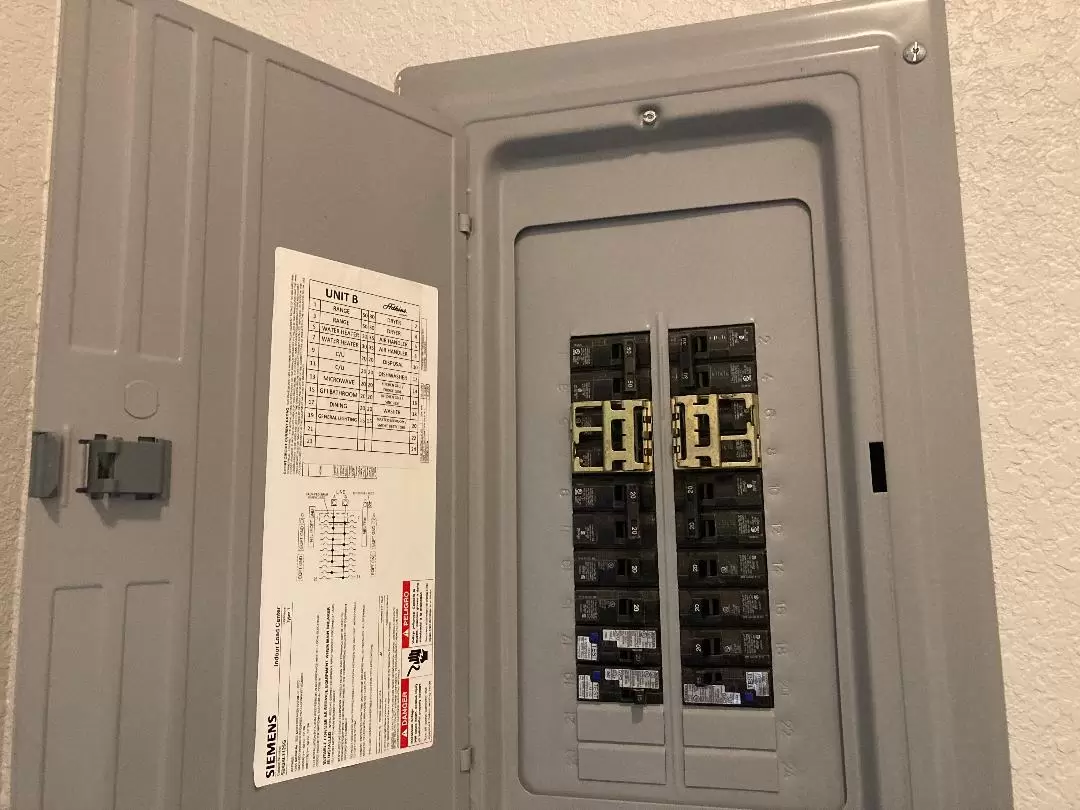
Power losses are common in hurricanes, and power surges may happen when the electricity is first restored. These sudden high-voltage events may damage the control boards in some A/C units, especially ductless and high-efficiency units with multiple fan speeds. At Kalos, we offer surge protectors that can help with these high-voltage events and consistent high voltage.
If you have natural gas, do not turn it on or off by yourself at the meter. You may turn off or disconnect individual appliances, but the only people who should turn your gas on or off are people from your utility company.
Again, if you must shut off any of your utilities, make sure you can do it safely. Do NOT attempt to touch any wires or breakers when wet, and don’t touch anything that appears damaged.
Additional Resources
This is just a quick list of last-minute preparations as we brace for a storm, but you can consult the U.S. Department of Homeland Security’s Ready public service campaign’s resources for disaster preparation. The Ready campaign has a page specifically for hurricane preparation HERE. You can download guides for all sorts of emergencies, including hurricanes, on THIS page.
We also recently wrote a blog post about ways that your HVAC contractor can help you prepare for hurricanes by making sure your unit is secure and protected. You can read that blog post HERE as well.
Stay safe, and feel free to call or text Kalos at (352)-243-7099 any time if you have any issues with your HVAC equipment after the hurricane and want us to send someone out to troubleshoot it.

